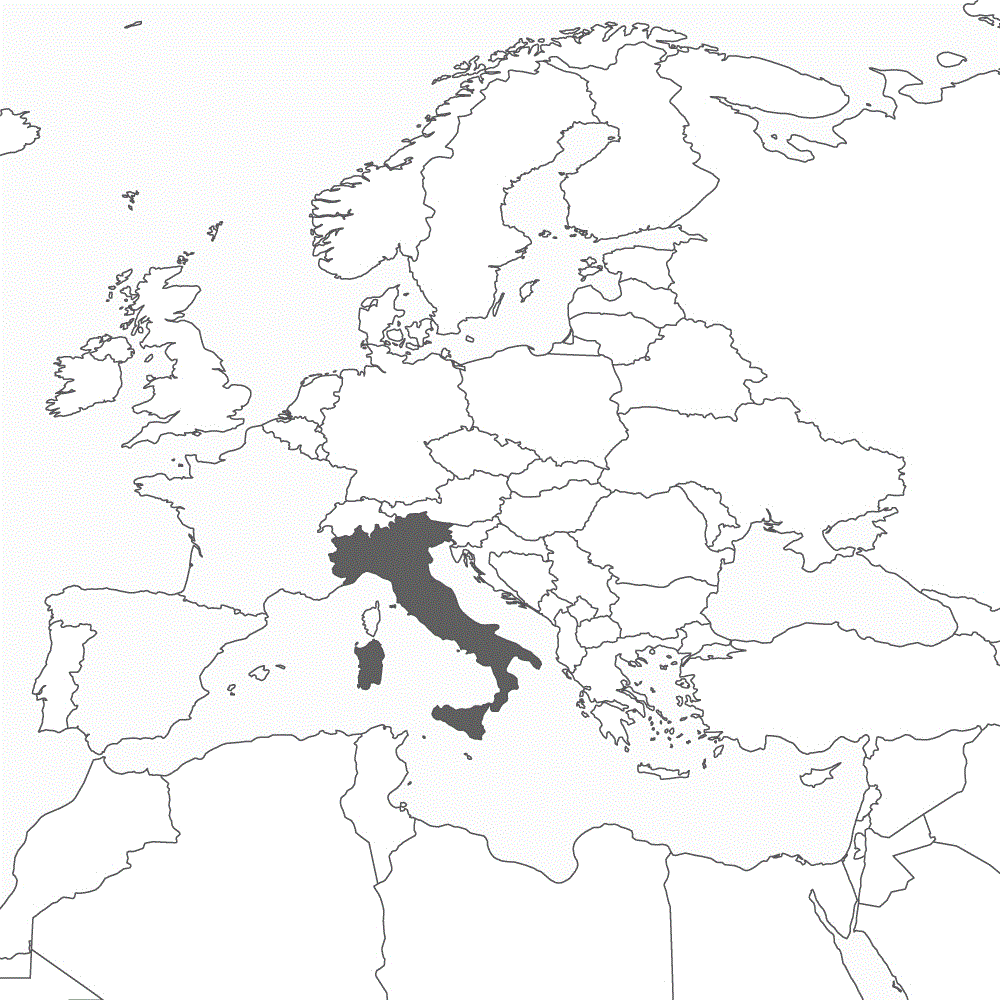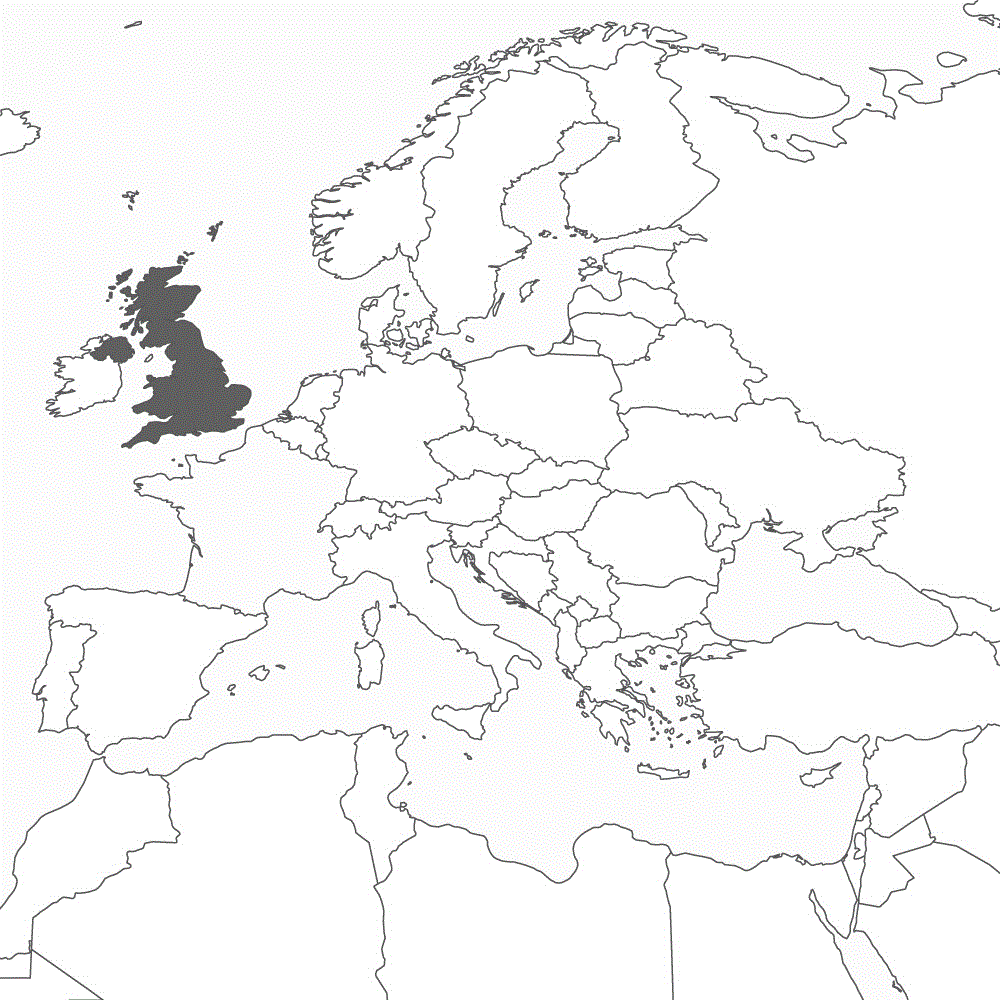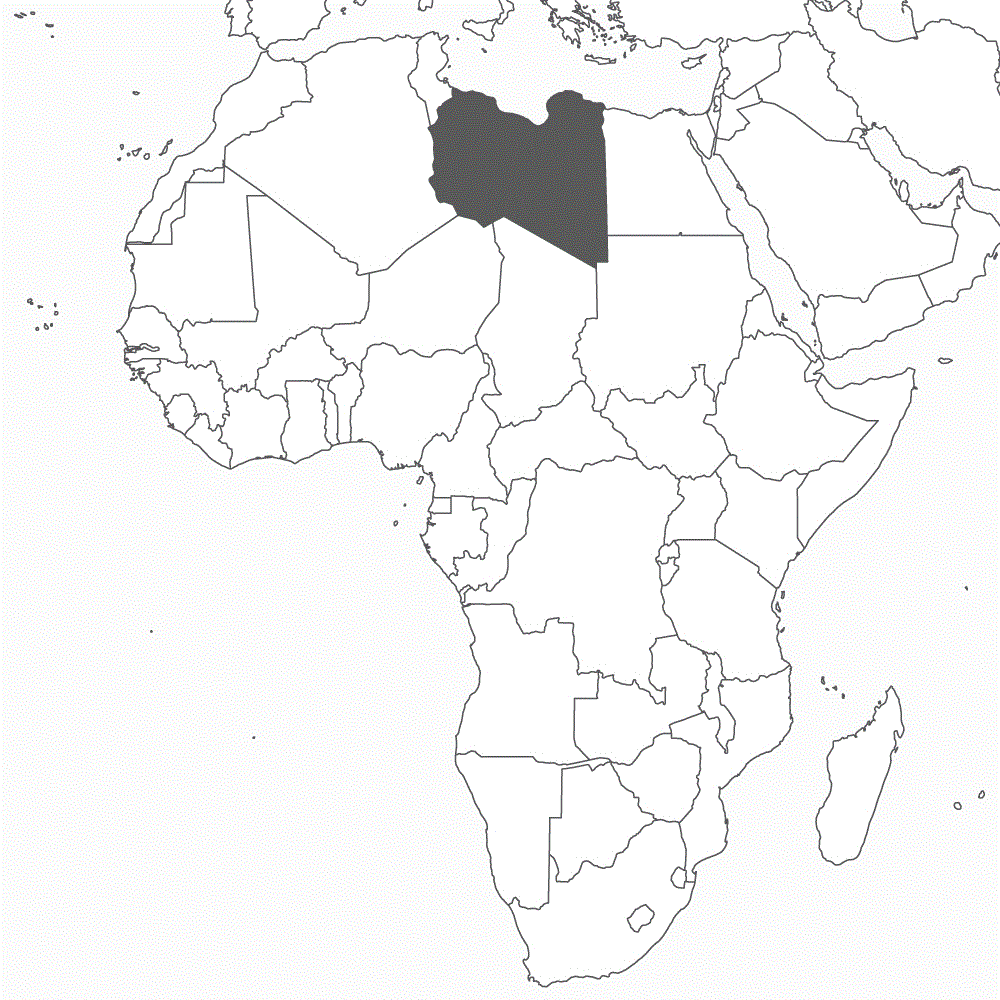‘Will of the people’ above the law
Outsourcing fast-track asylum procedures to Albania declared illegal by Rome court – initial setback for Meloni and von der Leyen. Calls at EU summit for Refugee Convention to be scrapped. Laws violated to repel migrants.
ROME/BRUSSELS (own report) - The European Commission's current plans to relocate asylum procedures to third countries suffered a serious setback at the end of last week. A court in Rome declared the transfer of several refugees to camps in Albania unlawful. The plan is to screen refugees in a third country and deport failed asylum-seekers from Albania directly to their countries of origin in a fast-track procedure. Such a practice would be incompatible with case law established by the European Court of Justice (ECJ), the Italian court has ruled. EU Commission President Ursula von der Leyen had previously indicated that she was considering the ‘Albania model’ for application throughout the EU. Von der Leyen is also looking into the establishment of ‘return hubs’ in third countries from which rejected asylum seekers could be deported. The Netherlands is already in talks with Uganda on this option. Denmark's Prime Minister declared at the EU summit on Thursday that the ‘rules’ no longer work ‘in today's world’, referring to the 1951 Geneva Refugee Convention. Italy's government wants to override the judiciary's decision to reject the ‘Albania model’. Read more
German or not at all
Berlin wants to stop Italian bank UniCredit from taking a major stake in Germany’s Commerzbank – just after Lufthansa has taken over Italy’s flag carrier airline. Double standards?
BERLIN/ROME (own report) – The German government’s rejection of UniCredit’s share swoop on Commerzbank is causing considerable resentment in Italy and other European countries. The large and expanding Italian bank wants to raise its stake, opening the prospect of a merger or takeover. German Chancellor Olaf Scholz has denounced UniCredit’s move as an “unfriendly attack”. Meanwhile, German Finance Minister Christian Lindner has been leaning heavily on his Italian counterpart to help prevent a takeover of Commerzbank. The Italian government, along with bankers and think-tank experts from other European countries, are pointing to double standards. Scholz, when he was still German finance minister, had called for the completion of an EU banking union to enhance Europe-wide integration. But, now, he is blocking a practical step towards consolidation in the EU banking sector. And, indeed, the German response is all the more remarkable given that Lufthansa has just taken over Italy’s largest airline, ITA Airways, which is the country’s flag carrier. Berlin’s rejection of a potential Italian takeover of Commerzbank follows an established pattern: major corporate mergers within the EU are to be realised under German leadership, or they’ll be blocked by Berlin. Read more
The Culprit's Law (II)
Italy pays reparations for Germany’s Nazi war crimes, while Germany gets off scot-free. The German (“coalition of values”) government has successfully enforced “sovereign immunity” for Germany.
ROME/BERLIN (Own report) – Italy’s government pays reparations for German Nazi war crimes, while Germany gets off scot-free. This is the consequence of a ruling by Italy’s Constitutional Court, made public in late July. According to the ruling states there are no legal objections to Rome funneling off approximately €60 million from the EU Corona reconstruction fund for token reparations to families of victims of massacres committed by Germany’s Wehrmacht and SS. This ruling terminates the decades-long legal dispute involving massacres like the one on June 29, 1944, when an SS unit attacked the village of Civitella, near Arezzo murdering more than 200 inhabitants. Italian courts had repeatedly ruled that Germany should pay reparations. Repeatedly, Berlin had appealed the verdict even to the International Court of Justice in The Haag, claiming the so-called sovereign immunity even in cases of the Nazi’s worst crimes. The current German (“coalition of values”) government has finally achieved success. Read more
War Divides
Foreign policy think tank expects dissipating support for Ukraine war and warns of polarization in the EU. Those favoring rapid peace already the majority.
BERLIN/ROME (Own report) – A Europe-wide think tank, headquartered in Berlin, warns of a long-lasting polarization in the EU caused by the Ukraine war. As the European Council on Foreign Relations (ECFR) acknowledged in its evaluation of the results of its survey, conducted in ten European countries, it is possible to identify already today, two clearly distinct opinion spectrums within the population. Whereas one of these insists, Russia must be defeated at all costs, the other urges a rapid peace settlement, even if this means Ukraine must make concessions. This is due to fears that the war will have negative consequences on the living standards throughout Europe and even threatens to escalate into a nuclear conflict. The ECFR considers that if the Ukraine war continues, the pendulum could swing in favor of those favoring peace, possibly endangering the cohesiveness of the EU. Declining support for arms deliveries to Ukraine had already been registered in Germany in May. In Italy, public protests opposing them are even spreading. Read more
ROME/BERLIN (Own report) - Financial experts from Switzerland's major UBS bank are warning of Italy's considerable risks in the case of a recession in the euro zone and they do not rule out the country's exit from the euro. If there is a recession, Rome must expect credit downgrades, UBS notes. Its national debt could easily soar out of control, and leaving the euro possibly could no longer be avoided. A fierce dispute is looming between Berlin and Brussels, on the one hand, and with Rome on the other, because Italy's budget deficit is higher than expected, due to its significant economic slump. Brussels and Berlin are currently only hesitant about engaging in the dispute because of the conflict over the Brexit and particularly because of the approaching EU elections, according to observers. At the same time, Germany is, itself, also moving toward stagnation, not least of all, because of a slump in Germany's export-dependent automotive industry. Read more
BERLIN/ROME/BEIJING (Own repot) - The West's power struggle against China is provoking new tensions between Germany and Italy. According to reports published last week, the Italian government plans to conclude a cooperation agreement with Beijing within the framework of the "New Silk Road" (Belt and Road Initiative, BRI) to benefit from Chinese investments in Italy's infrastructure, e.g. the Trieste port and Italy's power grid. China has already invested in several of the EU's periphery countries, heavily affected by Berlin's austerity dictate - such as Greece and Portugal - which gladly welcome these investments as relief. The German government is now beginning to make moves against this. Berlin seeks to prevent the People's Republic of China from increasing its influence within the EU and fears inner-European resistance if it takes aggressive action against its East Asian rival. Fierce debates are expected at the EU summit at the end of next week and at the EU-China summit on April 9. Read more
BERLIN/LONDON/PARIS/ROME (Own report) - London's government crisis escalated yesterday under the pressure of Berlin and the EU’s unaccomplishable Brexit requirements. Prime Minster Theresa May has barely survived a vote of confidence, which was ultimately triggered by the so-called backstop. Brussels insists on a regulation, which could indefinitely subjugate Great Britain to a customs union, without an option for a unilateral withdrawal and erect a trade border between two areas of the United Kingdom. These provisions are in Germany's interests, but they will plunge Great Britain into chaos. The current government crisis in France is largely due to the austerity programs imposed by Berlin on Paris - while refusing to make any concessions at the EU level. In France and Great Britain, the extreme right is profiting, like in Italy, where Berlin’s drastic austerity dictates, have already crushed the traditional political establishment. Read more
ROME/BERLIN (Own report) - German politicians and media are intensifying pressure on Rome in anticipation of today's EU Commission verdict on Italy's national budget. Already last week, EU Budget Commissioner Günther Oettinger announced, in reference to the Italian deficit, that the Italian government must "correct" its draft budget. Media reports refer to a "black week" for Rome. Negative reporting - like rating agencies' devaluation of Italy's creditworthiness - can contribute to the destabilization of Italy's financial and credit markets. The country's current downward spiral threatens to re-escalate the banking crisis. Whereas Berlin insists that the EU take sharp measures against deficits, Germany's Finance Minister at the time, Wolfgang Schäuble had prevented the EU Commission from taking measures against excessive surpluses, which the commission sees as potentially just as destabilizing. Germany has been achieving these surpluses year after year. Read more
TRIPOLI/BERLIN (Own report) - Sea rescuers, critical observers and experts are warning against the EU's plan to reinforce Libya's Coast Guard. Last weekend, sea rescuers announced they would file a lawsuit against the coast guard for allegedly leaving three people behind on the high seas in a disabled dinghy. A woman and a child died a miserable death. Already in June, the United Nations had imposed sanctions on several of the EU's Libyan cooperation partners - including the coast guard commander in Zawiya, the leader of a militia, accused of using firearms to sink migrant boats. Experts warn that by transforming civil war militias into coast guard units rather than disarming them, the EU is actually rewarding the armed militias and undermining the officially aspired reconstruction of the Libyan state. In the meantime, initial signs of opposition to the brutal repulsion of refugees are appearing within Italy's Coast Guard: Officers were refusing to follow orders and are voicing their criticism publicly. Read more
ROME/BERLIN/BRUSSELS (Own report) - The dispute in the EU over the economic policy of Italy's new right-wing government is becoming more acute in the context of the looming economic upheavals throughout Europe. After Italian bankers warned Rome to continue with the austerity policy applied over the past few years, Italy's new European Affairs Minister, Paolo Savona, called for a €50 billion-investment program. Prior to this demand, he publicly raised the possibility of Italy abandoning the euro. If Italy should exit the common currency, Berlin would have to expect huge losses and presumably write off €120 billion in the Target2 clearing system. In view of this, Germany's Finance Minister, Olaf Scholz, recently called the euro "irreversible." Considerable risks are not only looming because of Italy’s precarious situation, but also because of the escalating trade conflicts endangering exports - the very foundation of the German economic model. Read more
GERMAN-FOREIGN-POLICY.com
Information on German Foreign Policy: News + Interviews + Analyses + Background



